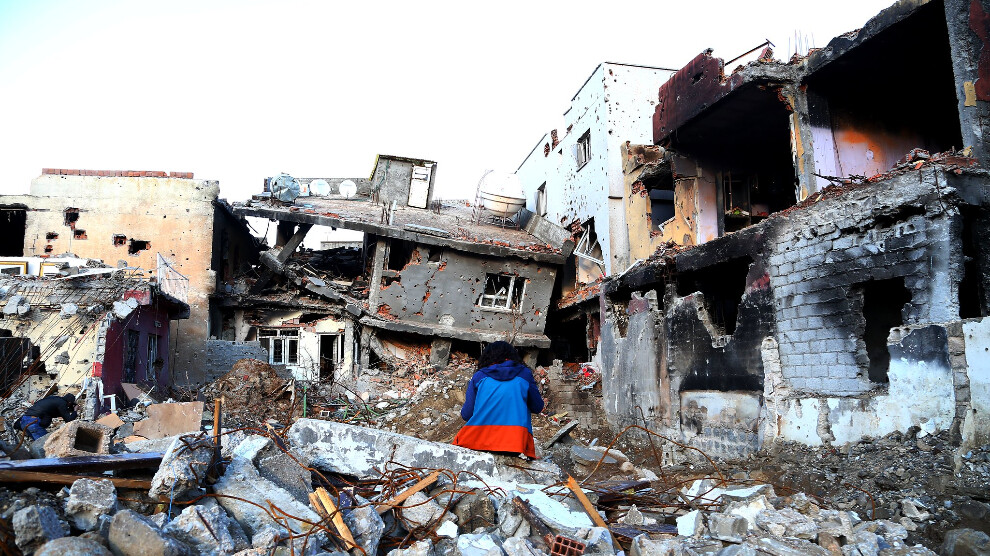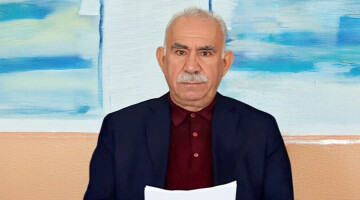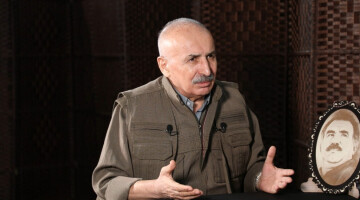Six years to the day have passed since the Turkish army murdered at least 177 people in the "death basements of Cizre". There has still been no end to the impunity of the perpetrators of this war crime. But as long as there is no justice for Cizre, justice will also be denied to Turkey. This was the main message of the annual commemoration organised by the Peoples' Democratic Party (HDP) in the district on Monday.
Many people came to remember the victims in the "basements of horror" and to cope with the collective pain for a moment. Among those present were Nuran İmir, Hüseyin Kaçmaz and Hasan Özgüneş. The HDP deputies from the Şirnak constituency had previously introduced a motion in the Turkish parliament for the complete clarification and legal processing of the human rights violations in Cizre. However, it is expected that the motion will be rejected with the votes of the Islamic-fascist government coalition of AKP and MHP.
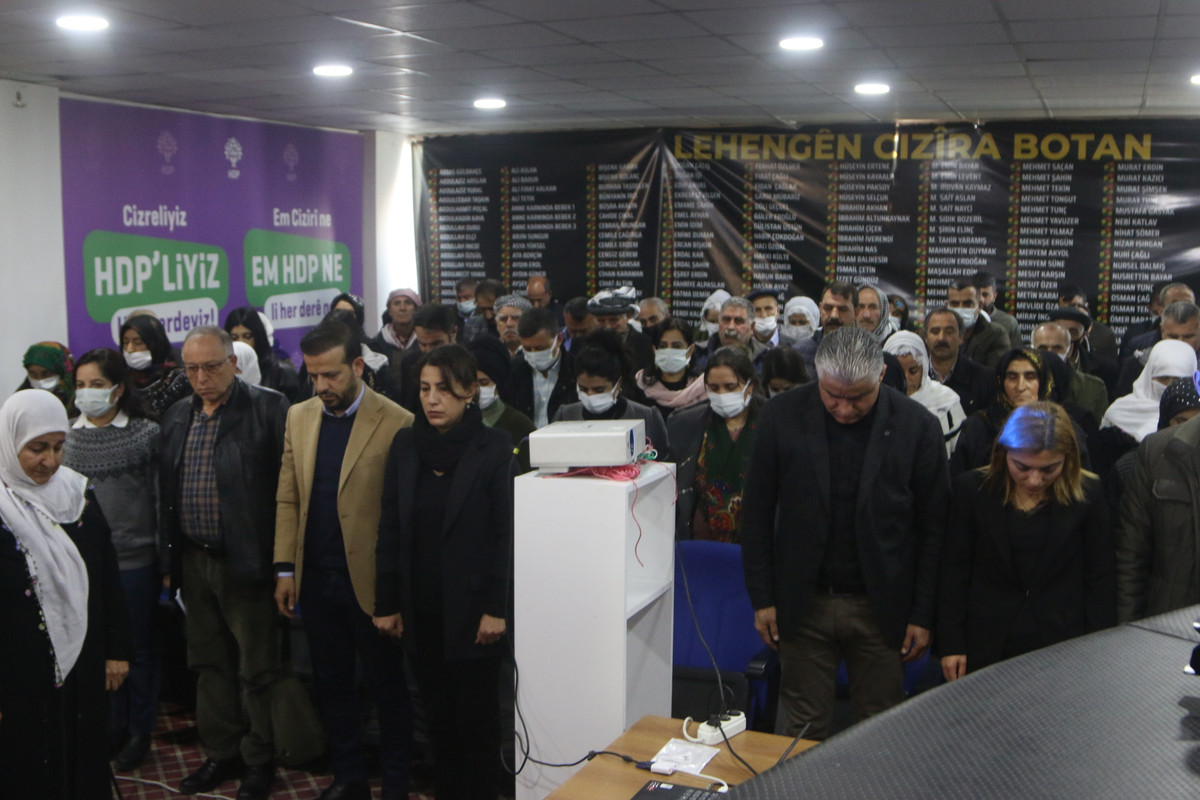
"Cizre will never forgive and never forget. Hundreds of people were murdered in the cruelest way in those winter days before the eyes of the entire world. Just as they announced from the basements shortly before their deaths that they would not bow down to oppression - no matter what might come - we will never bow down either. We promise them that," said Zilan Ecevit, co-chair of the HDP Cizre district branch. As long as there are people who long for freedom, the struggle of the dead will continue, she added.
The death basements of Cizre
The "death basements of Cizre" - this expression stands for a series of massacres perpetrated by the Turkish military in the Kurdish town on 7 February 2016 - in residential buildings where a number of people sought shelter from the war crimes of the Turkish state during the military siege. According to reports by human rights organisations, at least 288 people were killed in Cizre during the siege - 177 of them in the death basements alone. While in some basements those seeking shelter inside were burned to death as the military poured petrol into the basements filled with people, Turkish troops stormed other basements and shot those present dead. The bodies of 14 people killed in the death basements of Cizre have disappeared until today. They are Feride Yıldız, Mardin Çelebi, Hacer Aslan, Osman Gökhan, Hüseyin Derviş, Servet Aslan, İdris Susin, Ali Aslan, Cemal Pürlek, Emrah Aşkan, Osman Esmeray, Mustafa Keçanlu, Emrah Aşkın and Sakine Durmiş. Seven of them are said to have been buried in cemeteries of the nameless in other cities. In 74 other cases, the identity of those killed could not be established.
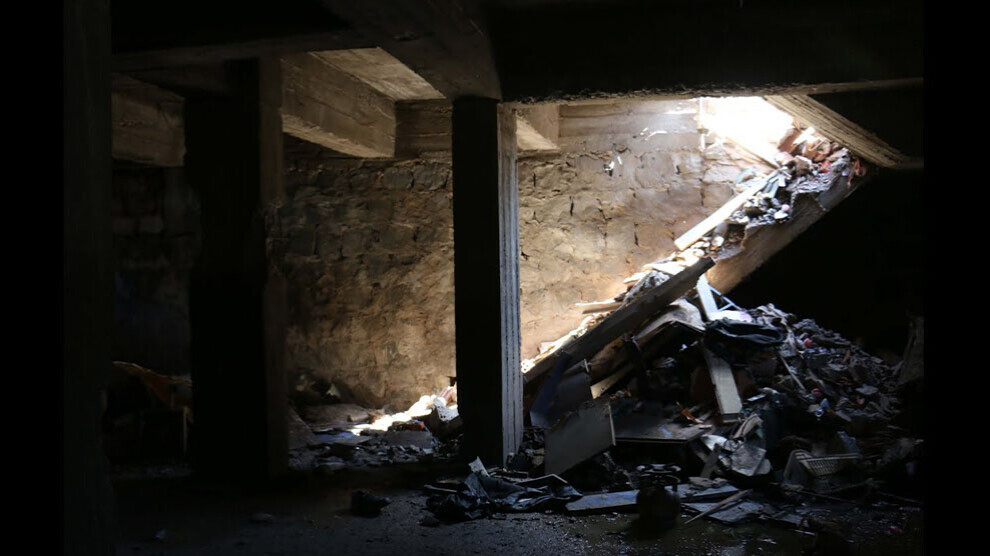
The first curfew in Cizre
On 4 September 2015, the Turkish government imposed a curfew on the Cizre district of Şırnak. It was the first of a long chain of curfews that continues to this day. During this first curfew, the Turkish state attacked the city for nine days with all the forces at its disposal, armed to the teeth with conventional weapons. The nine-day attack on Cizre resulted in 21 dead, dozens injured and hundreds of houses and flats destroyed.
Second siege in Cizre
On 14 December 2015, the second siege of the city, which at the time had about 115,000 inhabitants, began. For 79 days, the Turkish army bombarded Cizre both from the air and from the ground. The police and military took entire neighbourhoods under fire, destroyed the telephone, electricity and water supply and encircled several thousand people. Residents who sought shelter from the attacks in the basements of their homes were cruelly murdered. In these 79 days, at least 259 other people were killed by Turkish security forces. Because of this brutal approach against the injured, who took shelter in the basements of the buildings for their own protection, the crime scenes have also been burnt into the memory of Kurdish society as "basements of horror". The bodies of a total of 177 people, including 25 children, were recovered from the rubble in the Cudi and Sur neighbourhoods. In three basements alone, known to the wider public, 31, 62 and 50 people died respectively.
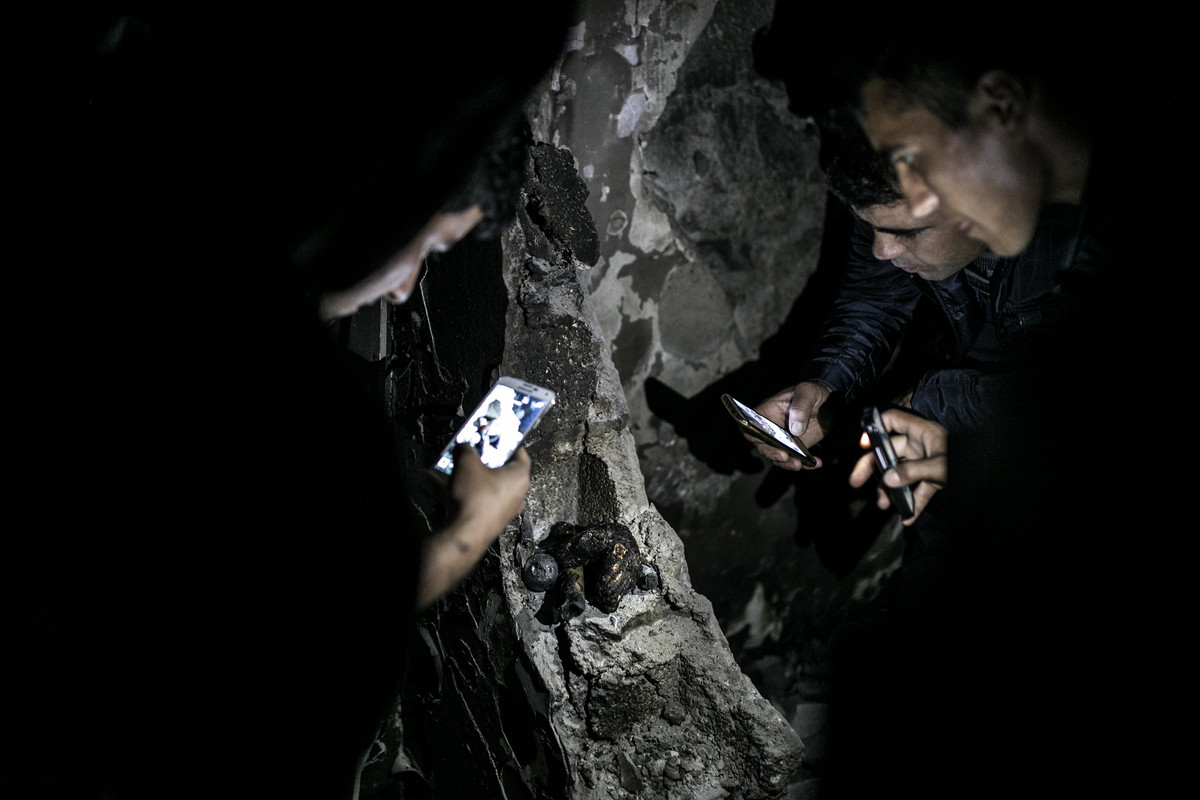
110,000 people displaced
The most severe destruction was inflicted on the neighbourhoods of Cudi, Yafes, Sur and Nur, 80 per cent of which were razed to the ground. 500 buildings were completely destroyed and 2,000 houses were severely damaged. After 20 days, 110,000 people were forcibly evicted from the city. The destruction was then extended, and 500 more houses were demolished by the state building authority TOKI. The winding old buildings were destroyed and some 6,500 flats were built in their place in military-controlled prefabricated buildings.
Investigations into 121 deaths are delayed
Although six years have now passed, there is still no progress in the investigations into the circumstances of the deaths of 121 people. 83 of the cases have been closed. In 51 of these cases, proceedings before the Constitutional Court have been requested. Another four proceedings have been frozen and in 34 proceedings a decision of "lack of jurisdiction" has been made.
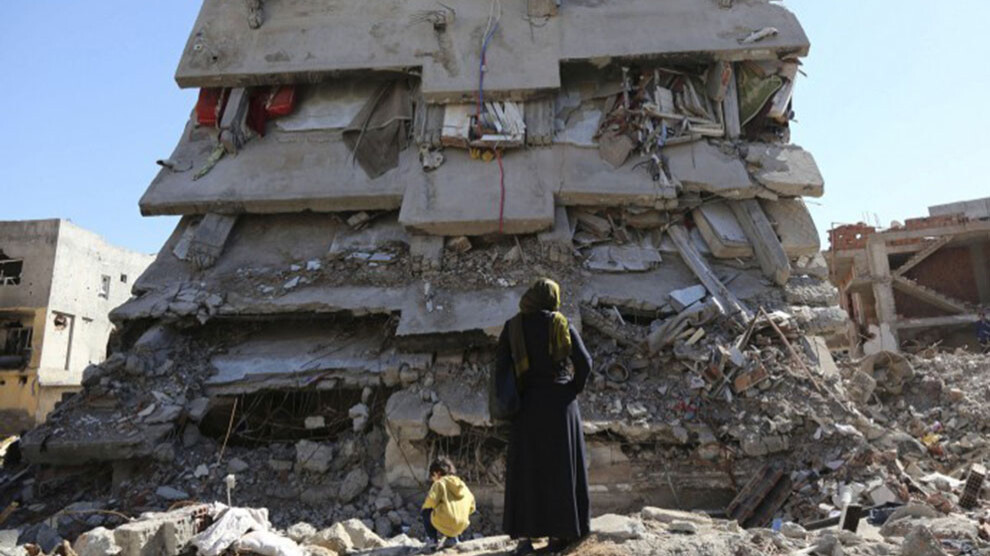
Norman Paech: What happened in Cizre was a war crime
The Hamburg-based international law expert Prof. Dr. Norman Paech describes what happened in Cizre and other regions besieged by the Turkish military in 2015/2016 as a "war against the population". Paech classifies the massacres as war crimes and crimes against humanity. But since Turkey has not ratified a large number of agreements that are binding under international law, it cannot be tried before the International Criminal Court for the attacks and massacres, according to Paech. Only if requested by the UN Security Council would it be possible to bring charges against those responsible from the Turkish government in The Hague. However, the realisation of this would depend on legal as well as political reasons and the attitude of the United Nations.
ECtHR dismisses complaint
In February 2019, the European Court of Human Rights (ECtHR) dismissed a case against the Turkish state over rights violations by Turkish security forces during curfews in Cizre. The decision was based on the so-called lack of jurisdiction. The Strasbourg judges did not deal with the substance of the complaint and decided that the national legal process had to be exhausted first. There were still two cases pending before the Constitutional Court and these had to be awaited before the ECtHR could deal with the case.
The case before the ECtHR concerned the cases of Ömer Elçi and Orhan Tunç. Orhan Tunç was shot by security forces in Cizre and fled injured into a cellar. His brother, the co-chair of the Cizre People's Council, Mehmet Tunç, initiated an application to the ECtHR and obtained an urgent decision that the Turkish state must use all its means to protect the right to life and physical integrity. The government in Ankara ignored the decision and let the man die. Mehmet Tunç died a few days later, also in February 2016.
The applications on behalf of Ömer Elçi and Orhan Tunç were selected by the ECtHR from 35 applications as a pilot case. This procedure makes a model decision for a pilot case, which forms a model for countless legally similar cases, which are then decided in an accelerated procedure at the ECtHR. Nevertheless, the European Court of Human Rights decided against a model decision for Turkey and persistently adhered to the exhaustion of the national legal process. And this despite the fact that Turkey can no longer be said to be a functioning constitutional state.
RELATED NEWS:

